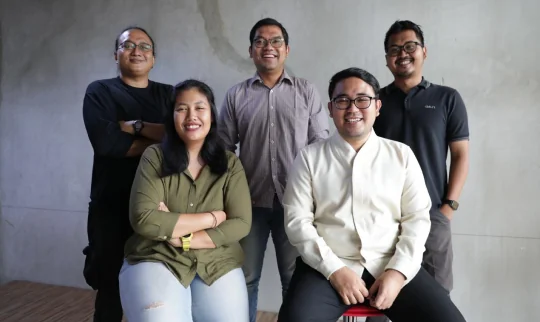When the team at Tempo, a weekly print magazine started in Indonesia in 1971, launched the Bocor Alus Politik podcast in May 2023, they were addressing a specific problem statement. Print journalism was on a decline, and they wanted to reach newer audiences and re-direct them to the digital version of the magazine.
The findings in the Digital News Report 2023, published a month after the launch of the podcast, validated Tempo’s decision. “In the longer term, our data suggest that significant shifts in audience behaviour, driven by younger demographics, are likely to kick in, including a preference for more accessible, informal and entertaining news formats, often delivered by influencers rather than journalists, and consumed within platforms like YouTube, Instagram, and TikTok,” the report said.
The transition from print to audio-visual, like all changes, wasn’t easy. “For the several initial episodes of the podcast, we felt stage fright because we, as print journalists, almost never come on stage—in front of the camera and under the spotlight,” says Raymundus Rikang, one of the hosts of the podcast. While these challenges are a right of passage for all first-time podcasters, Rikang points to another obstacle that is a common occurrence for news brands.
“The discussion among the hosts is more likely to be an echo chamber,” says Rikang. “We realised that this format could build the perception that the Bocor Alus podcast is only political tittle-tattle rather than a journalistic podcast that is based on the facts that we get from interviewing the sources, cross-checking documents, verification and research.”
A piece of advice from the senior newsroom leadership, including the Editor-in-Chief, Deputy Chief Editor and Senior Editor, helped pave the way forward. They suggested that one of the three hosts plays the role of devil’s advocate to avoid the discussion from turning into an echo-chamber. The devil’s advocate host, the leadership team suggested, should examine the information or facts that are addressed by the other hosts by asking simple questions.
This advice, and a lot of “learning by doing” on the part of the newsroom, the hosts and the production team bore fruit and Bocor Alus Politik slowly carved a niche for itself in the Indonesian news podcast market. More than a year since its launch, multiple Bocor Alus Politik episodes have crossed one million views. The episode about the role of Iriana, the First Lady supporting her son, Gibran Rakabuming Raka, to become Prabowo Subianto’s running mate in the 2024 presidential election, has garnered more than 3 million views. With more than 70 million viewers so far, the digital magazine has seen a 93% increase in visitors. “We never imagined before that our journalism products, in the case of the printed version, would be accessed by millions of audiences, but it’s possible with the news podcast on YouTube,” says Rikang.
For news brands which do not have the advantage of riding on the existing trust of a legacy parent brand, a big factor in Bocor Alus Politik’s success, winning the audiences’ trust can be difficult. “The podcasting space is crowded, making it difficult to stand out,” says Rikang.
What advice does he have for independent news organizations planning to start a podcast? “Preserving the news organization’s value and excellence is the most important thing,” says Rikang, a reminder for news organizations preparing to foray into the highly crowded podcasting market that getting the fundamentals right is crucial.
International Podcast Day: How news podcasts can help media reach new audiences
